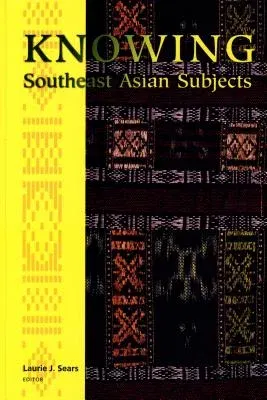Knowing Southeast Asian SubjectsPaperback, 1 May 2007

Qty
1
Turbo
Ships in 2 - 3 days
In Stock
Free Delivery
Cash on Delivery
15 Days
Free Returns
Secure Checkout

Part of Series
Critical Dialogues in Southeast Asian Studies
Print Length
296 pages
Language
English
Publisher
University of Washington Press
Date Published
1 May 2007
ISBN-10
0295986832
ISBN-13
9780295986838
Description
Product Details
Book Format:
Paperback
Country of Origin:
US
Date Published:
1 May 2007
Dimensions:
22.73 x
16.71 x
1.6 cm
ISBN-10:
0295986832
ISBN-13:
9780295986838
Language:
English
Location:
Seattle
Pages:
296
Publisher:
Weight:
412.77 gm